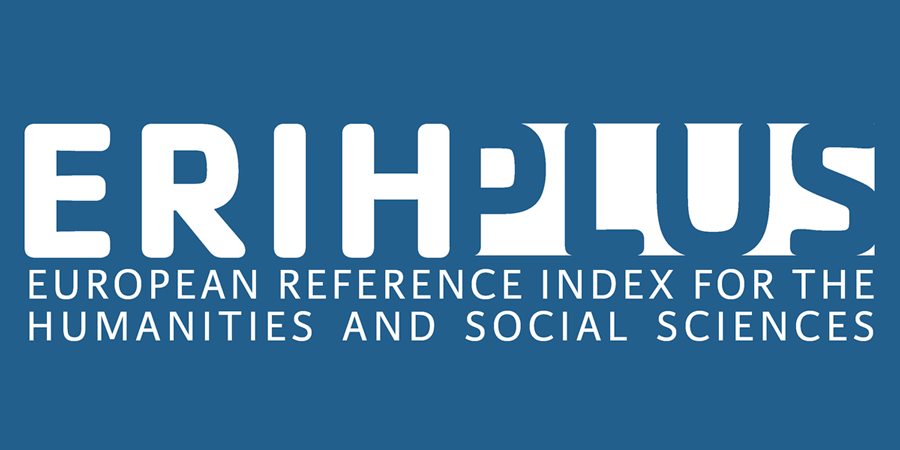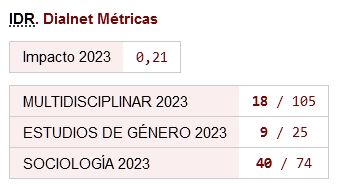Border politicizations: the “place” of dissident sexual identities in city spaces
DOI:
https://doi.org/10.46661/relies.4954Keywords:
Politicitation, dissenting sexual and gender identities, places of the cityAbstract
This article is the result of an investigation that sought to investigate the forms of politicization of dissident sexual and gender identities in inner cities in the countries of Uruguay and Argentina. This text gathers some of the findings obtained and aims to analyze how disident identities are politicized by subjects in different parts of the city of Rivera (Uruguay). We start by asking ourselves how, in a context of legal guarantees for this population, as is the case in Uruguay, the subjects organize their identity experience, what spatial and symbolic boundaries we can find, and how they affect these in the trajectories of people in their daily lives and particularly in the enjoyment of their rights.
The methodology used, of a qualitative nature, articulates the conduct of in-depth interviews and participant observation, with an ethnographic perspective. The findings found show how the ways to politicize identities on the part of the subjects are not homogeneous but oscillating, bordering. It is also observed how are reproduce, in city locations, exclusive and unequal sociosexual imaginaries based in cissexual and heterosexual order that limits the exercise of human rights.
Downloads
References
Anzaldúa, G. (2016). Borderlands. La frontera. The New Mestiza. España: Capitán Swing.
Argüello, S. (2013). “El proceso de politización de la sexualidad: identificaciones y marcos de sentido de la acción colectiva”. En: Revista Mexicana de Sociología. Vol. 75. N°2, pp. 173-200.
Blas, R. (2018). ¿Qué es el tokenismo cisexista? En Revista Anfibia, disponible en: http://revistaanfibia.com/ensayo/que-es-tokenismo-cisexista/
Blas, R. (2018). “Políticas trans y acciones afirmativas en los ámbitos universitarios. Conversaciones necesarias para deshacer el cisexismo”. En Revista Aletheia Vol. 10 N.º 19.
Bourdieu, P. (1999). Meditaciones Pascalianas. Barcelona: Anagrama.
Butler, J. (2006). Vida Precaria. El poder del duelo y la violencia. Buenos Aires: Paidós.
Butler, J. (2007). El género en disputa. El feminismo y la subversión de la identidad. España: Paidós.
Butler, J. (2009). Lenguaje, Poder e identidad. Madrid: Síntesis.
Butler, Judith (2010) Cuerpos que importan. Buenos Aires: Paidós.
Foucault, M. (2008). Vigilar y Castigar. Buenos Aires: Siglo XXI.
Foucault, M. (2011). Historia de la sexualidad. Buenos Aires: Siglo XXI.
Giglia, A. (2012). El habitar y la cultura perspectivas teóricas y de investigación. España: Anthropos.
Goffman, E. (2006). Estigma la identidad deteriorada. Buenos Aires: Amorrorotu.
Guasch, O. (1993). “Para una sociología de la sexualidad”. En: Revista española de investigaciones sociológicas. Nº 64, pp 105-122.
Guber, R. (2001). La etnografía, método, campo y reflexividad. Bogotá: Grupo Editorial.
Hall, S. (2003). “¿Quién necesita «identidad»?” En: S. Hall y P. du Gay (comps.) Cuestiones de identidad cultural. Buenos Aires: Amorrortu.
Hernández, J.O. (2016). “El último vagón”. El metro de la Ciudad de México: Heterotopías y prácticas homoeróticas. Tesis de Maestría, inédita. Disponible en: http://132.248.160.2:8991/pdf_pug01/000000287.pdf Último acceso: Septiembre de 2018.
Massey, D. (1994). Espacio, Lugar y Género. Cambridge: Polity Press.
Massey, D. (2004). “Lugar, identidad y geografías de la responsabilidad”. En: Treballs de la Societat Catalana de Geografia, N.º 57, pp 77-84.
Massey, D. (2012). Un sentido Global del lugar. España: Icaria.
McDowell, L. (2000). Género, identidad y lugar. Un estudio de las geografías feministas. Madrid: Cátedra.
Rubin, G. (1989). “Reflexionando sobre el sexo: notas para una teoría radical de la sexualidad”. En: Vanee, Carole (coord.). Placer y peligro: explorando la sexualidad femenina. Madrid: Revolución.
Sabsay, L. (2011). Fronteras Sexuales. Espacio Urbano, cuerpos y ciudadanía. Paidós: Buenos Aires.
Sabsay, L. (2013). “Dilemas queer contemporáneos: ciudadanías sexuales, orientalismo y subjetividades liberales. Un diálogo con Leticia Sabsay”. En: Revista Íconos. Revista de Ciencias Sociales. Núm. 47, pp. 103-118.
Segovia, O. (2009). “Convivencia en la diversidad: una mirada de género al espacio público” En: A. Falú (ed.) Mujeres en la ciudad. De violencias y derechos. Red Mujer y Hábitat de América Latina. (pp. 145-162). Chile: Ediciones SUR.
Segura, R. (2009). “Paisajes del miedo en la ciudad. miedo y ciudadanía en el espacio urbano de la ciudad de la plata”. En: Cuaderno Urbano. Vol. 8 - No 8. pp. 59 - 91.
Sempol, D. (2013). De los baños a la calle. Montevideo: Debate.
Sempol, D. & Montano, M. (2018). Baños públicos. La última segregación. Baños públicos moral, género y sexualidad en Uruguay. Montevideo: Intendencia Municipal de Montevideo (IMM).
Sívori, H. (2005). Locas, chongos y gays. Sociabilidad homosexual masculina durante la década de 1990. Buenos Aires: Antropofagia.
Vance, C. (1997). “La antropología redescubre la sexualidad: un comentario teórico”. En: Estudios Demográficos y Urbanos, Vol. 12, No. ½, pp. 101-128.
Weeks, J. (1998). Sexualidad. México: PUEG-UNAM/Paidós.
Wittig, M. (2006). El pensamiento heterosexual y otros ensayos. España: Egales.
Downloads
Published
How to Cite
Issue
Section
License
Copyright (c) 2020 Creative Commons 4.0 Internacional

This work is licensed under a Creative Commons Attribution-NonCommercial-NoDerivatives 4.0 International License.






